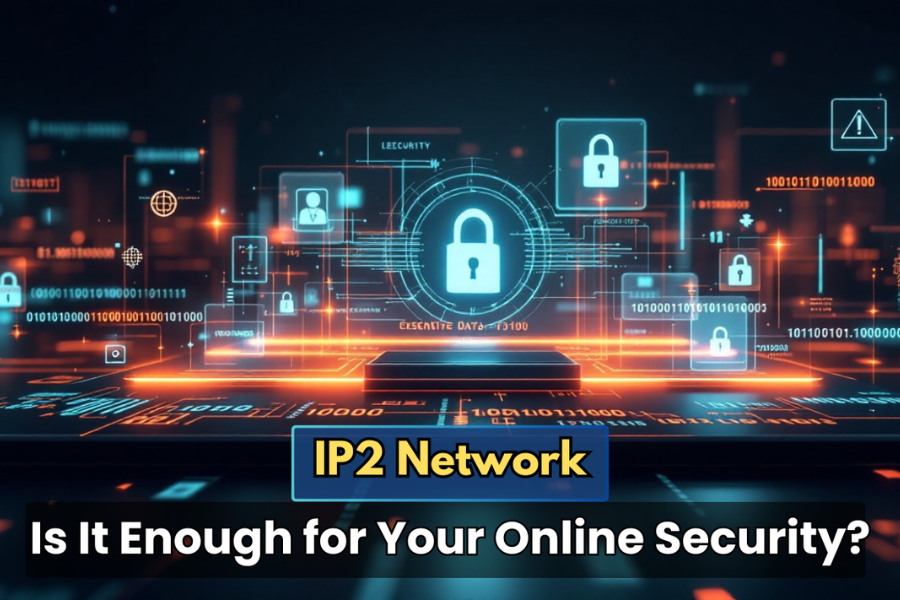As cyber threats evolve and privacy breaches become increasingly frequent, users and organizations are in dire need of reliable, next-generation solutions that ensure secure, private, and efficient online activity. This has led to the rise of the IP2 Network, a powerful innovation in the field of networking technology. But with all its impressive claims, is the IP2 Network truly capable of safeguarding your digital presence? Or is it just another tech buzzword that falls short in practice?
In this comprehensive guide, we will take a deep dive into what the IP2 Network is, how it functions, and whether it lives up to the promises of improved security, speed, and scalability. From intelligent routing and encryption protocols to real-world applications and deployment challenges, this article will help you decide if the IP2 Network is right for you or your organization.
What Exactly Is the IP2 Network?
The IP2 Network is a revolutionary framework designed to overcome the limitations of traditional Internet Protocols like IPv4 and IPv6. Unlike conventional networks, which depend heavily on centralized servers and linear routing mechanisms, the IP2 Network operates on a decentralized, peer-to-peer architecture. This makes it inherently more resilient to failures and attacks.
What makes the IP2 Network particularly unique is its integration of AI-driven routing algorithms, which dynamically optimize data pathways for reduced latency and improved efficiency. These intelligent systems not only boost performance but also introduce proactive threat detection and automated responses to potential cyber risks.
Furthermore, it supports end-to-end encryption, backward compatibility with legacy protocols, and sustainable operations through energy-efficient protocols. This makes it not just a secure platform, but also a green and future-proof infrastructure.
Core Features That Define the IP2 Network
Let’s explore the defining characteristics that differentiate the IP2 Network from traditional networks:
1. Optimized Speed and Network Performance
Thanks to AI-powered routing, the IP2 Network minimizes traffic congestion and enhances data transmission speeds. Whether you’re streaming video or conducting real-time business operations, this improvement in latency reduction and bandwidth management leads to smoother and more efficient performance.
2. Built-in Security and Data Protection
The IP2 Network uses robust encryption protocols and advanced AI-based anomaly detection to secure every layer of communication. Unlike traditional
that rely on third-party firewalls, security is baked directly into the architecture.
3. Massive Scalability for Modern Ecosystems
Designed with IoT and enterprise expansion in mind, the IP2 Network can easily scale to accommodate increasing volumes of users, devices, and real-time applications—without sacrificing speed or reliability.
4. Self-Governing Network Management
A standout feature is its autonomous maintenance, with the ability to self-heal, troubleshoot issues, and optimize resource allocation without human intervention. This drastically reduces downtime and operational costs.
5. Resilient Decentralized Infrastructure
Rather than relying on a single control point, the IP2 Network distributes data across a network of nodes, making it significantly harder for attackers to compromise or bring down the system.
6. Advanced Quality of Service (QoS) Capabilities
The network intelligently prioritizes critical traffic, including emergency services, VoIP calls, and live video, ensuring reliability during periods of high usage or data surges.
7. Smart Routing for Seamless Connectivity
Using artificial intelligence, the IP2 Network continuously evaluates traffic paths and redirects data through the most efficient routes. This results in faster delivery and improved user experience.
A Useful Guide to IP2 Network Configuration
Deploying the IP2 Network may sound complex, but its integration process is designed to be smooth. Here’s a simple step-by-step overview:
Define Your Requirements
Identify your needs: Is your primary goal enhanced privacy, geo-unblocking, or secure enterprise communication?
Select the Right Proxy Type
Choose from options like SOCKS5 Residential Proxies, Static ISP Proxies, or S5 Unlimited Proxies based on your usage.
Download the IP2 Proxy Manager
Install the IP2 Proxy Manager to configure your proxy settings effectively.
Sign In to Your IP2World Account
Access your control panel by logging into your IP2World account and viewing your available proxy list.
Bind IPs to Local Ports
Link specific IP addresses to desired ports, allowing your apps or devices to communicate via a secure channel.
Update Device Configurations
Adjust your app or system proxy settings to align with the IP2 proxies for optimal performance.
Perform Regular Testing and Monitoring
Constantly assess the network to ensure proxies are functioning correctly and providing the intended security and speed.
IP2 Network vs. Traditional Internet Protocols
Let’s compare the IP2 Network to the legacy Internet frameworks:
| Feature | IP2 Network | IPv4/IPv6 |
| Security | Integrated end-to-end encryption, AI-based detection | Relies on third-party firewalls and VPNs |
| Routing | AI-driven, adaptive | Static, manual routing |
| Scalability | Seamlessly scales with IoT and devices | Limited by address space or architecture |
| Resilience | Decentralized and fault-tolerant | Centralized and vulnerable to failure |
| Automation | Self-healing and predictive analytics | Manual monitoring and intervention |
Key Advantages of Adopting the IP2 Network
Implementing the IP2 Network comes with numerous benefits for individuals and enterprises alike:
- Heightened Privacy: Your IP address and personal identity are masked through advanced proxy and encryption systems.
- Enterprise-Ready Scalability: Whether you’re a startup or a multinational, the network grows with you.
- Superior Performance: Lower latency, higher throughput, and reliable uptime thanks to intelligent traffic handling.
- Global Connectivity: Geographically distributed nodes allow seamless international communication and access.
- Compatibility with Legacy Systems: Supports IPv4/IPv6 systems, ensuring no disruption during transition phases.
Where Can You Use the IP2 Network?
Applications for the IP2 Network are numerous and span several industries:
- Smart Cities & IoT: Helps connect infrastructure like traffic lights, surveillance systems, and utilities through a secure and scalable network.
- Finance & Banking: Ensures secure, real-time transactions and fraud prevention.
- Healthcare & Telemedicine: Enables low-latency remote diagnostics and real-time data exchange between providers and patients.
- Media Streaming: Offers uninterrupted video playback, faster load times, and fewer buffering issues.
- Cybersecurity: Built-in AI features help detect threats before they materialize.
- Cloud & Edge Computing: Ensures faster access and computation at the edge, reducing cloud dependency.
- Government & Military: Provides encrypted and decentralized communication for national security and tactical operations.
Potential Challenges in Deploying the IP2 Network
While the benefits are compelling, implementing the IP2 Network is not without its challenges:
- Migration Complexity: Transitioning from existing protocols demands detailed planning and phased execution.
- Compatibility Hurdles: Older systems might require custom integration layers for compatibility.
- Training Requirements: Both IT teams and end-users need to familiarize themselves with new functionalities.
- Resource Demands: High-level AI features may require substantial computing power unless optimized.
The Future of IP2 Network Technology
The IP2 Network is not just a solution for today—it’s a foundation for tomorrow’s digital ecosystems. Here’s what’s on the horizon:
- Stronger AI Enhancements: AI engines will continue evolving to offer predictive traffic control and network healing.
- Quantum Encryption Compatibility: Future versions will leverage quantum computing for unbreakable security.
- 5G and Beyond Support: Perfectly aligns with the high bandwidth, low latency needs of next-gen mobile networks.
- Expanded Edge Computing Integration: Will push processing power closer to users, enhancing real-time responsiveness.
Final Words:
The IP2 Network is undoubtedly a robust, forward-thinking networking model designed for the complexities of the modern Internet. With integrated AI, decentralization, and enterprise-grade encryption, it’s a significant leap beyond IPv4 and IPv6.
However, like any security system, it should be viewed as a part of a broader cybersecurity strategy. Complementing the IP2 Network with VPNs, firewalls, and two-factor authentication can help you build a layered defense that leaves little room for compromise.
FAQs:
How secure is the IP2 Network?
The IP2 Network incorporates powerful encryption protocols like SSL/TLS and uses AI to detect anomalies. It also uses IP masking to prevent surveillance or data interception.
Is the IP2 Network legal to use?
Yes, the IP2 Network is legal for most applications. However, using it for illegal activities, such as bypassing copyright restrictions, may violate regional laws.
Can I use the IP2 Network with a VPN?
Absolutely. Combining the IP2 Network with a VPN enhances both anonymity and data protection, offering an even higher level of digital security.
Do I need special equipment for IP2?
In most cases, you don’t need to buy new hardware. The IP2 Network is designed to be compatible with existing systems and easy to integrate.
Is the IP2 Network better than IPv4 or IPv6?
For modern needs like AI processing, real-time communication, and IoT, the IP2 Network is far superior. However, it works best when tailored to the specific needs of your organization or use case.
In summary,
The IP2 Network is not just a technological upgrade—it’s a strategic advancement toward a faster, safer, and smarter Internet. Whether you’re a business seeking scalability or an individual focused on privacy, IP2 offers a platform that evolves with the digital world.
Keep an eye for more latest news & updates on Touch Cric!

